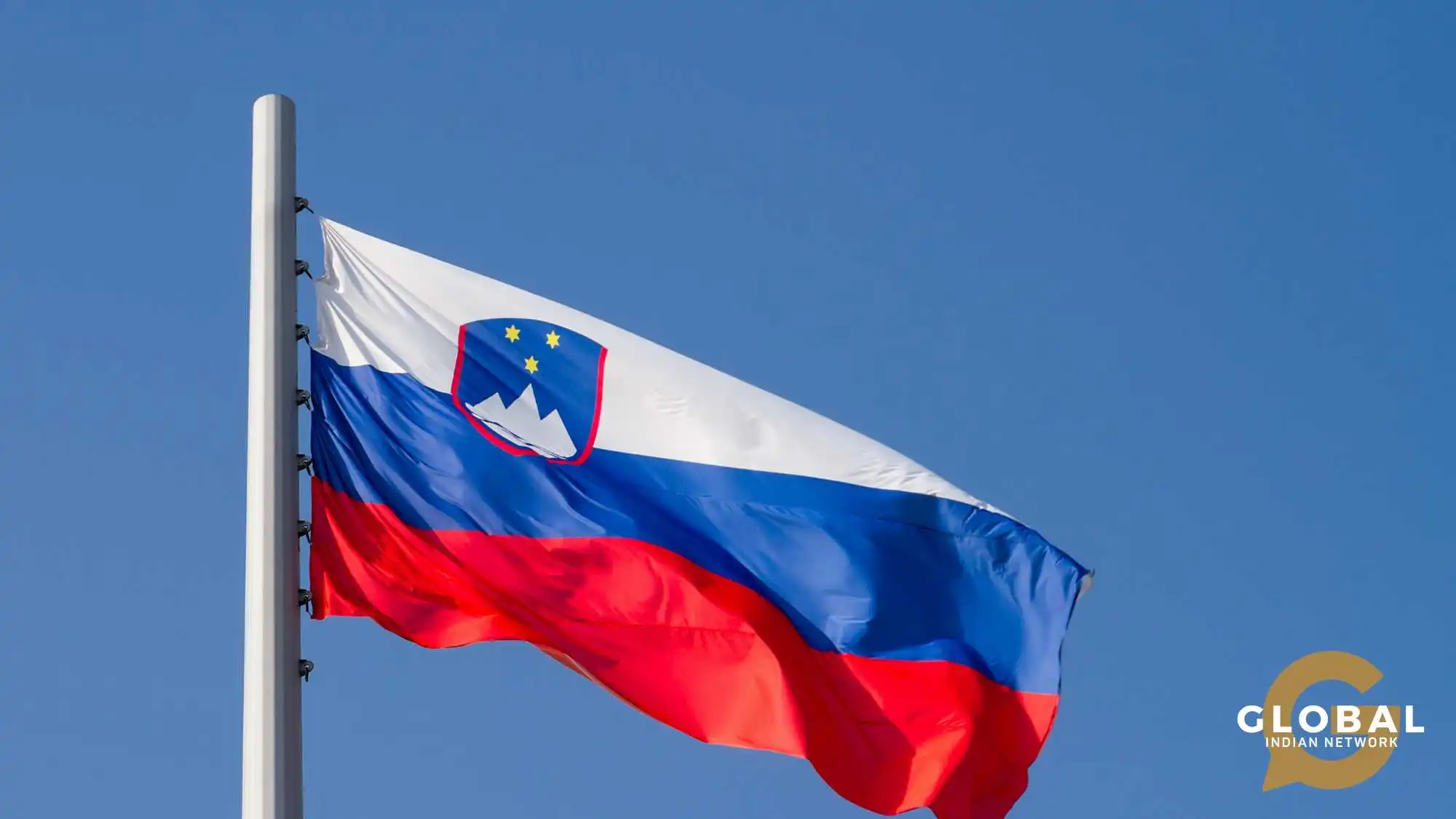February 8 marks an auspicious cultural moment in the year for all Slovenian citizens, in which they immerse themselves in the world of poetry, music and all kinds of art. The day memorializes the death of the pioneering 19th-century Slovenian poet France Prešeren (1800-1849), considered a national figurehead for Slovenian culture and literature.
Read on for a dive deep into the story behind Slovenian Culture Day, or Prešeren Day, one of Slovenia's most important public holidays.
Table of Contents
France Prešeren: The Poet and The Man
France Prešeren is a 19th-century Romantic poet who wrote in the patriotic strain amid the repression of Slovenian nationalism under the Austro-Hungarian occupation. He was born into a moderately comfortable peasant family in the Upper Carniolan village of Vrba.
His academic flair, visible early on in his life, encouraged his parents to provide him with a good education. In 1821, he enrolled at the University of Vienna, where he studied law. Despite his legal studies, he thoroughly familiarised himself with the Western canon, from Homer and Dante to Goethe and the contemporary Romantic poets.
In 1833, he made the acquaintance of Julija Primic, the daughter of a wealthy merchant, who would become his poetic muse for several years. After three years of unreciprocated love, Prešeren moved on to have three children with Ana Jelovšek, who remained his partner for life despite never marrying.
Much of his poetry draws inspiration from the natural scenery he encountered on his habitual travels through Carniolia, especially Lake Bled, which he frequented. His poetic oeuvre is richly coloured by various modes that he experimented with, from sonnet and satire to folk and romantic poetry.
Prešeren had a tragically tumultuous life replete with rejection, death and ostracisation, all of which sentiments unsurprisingly bleed into his poetry. Continually at odds with religious and political establishments, and even the bourgeoisie in Ljubljana, throughout his career, the motif of "the hostile fortune" is a defining feature of his work.
History and Background: Slovenian Culture Day
Prešeren Day, or Prešernov Dan, is one of the sixteen national holidays in the Slovenian annual calendar. It was first celebrated in 1943 as a holiday of pan-Slovenian unity and solidarity, rising out of nationalist sentiment opposed to the fascist occupation during the Second World War.
In 1945, the day was officially decreed as a cultural holiday by the Slovenian National Liberation Council. It remained a public holiday during the entire tenure of the Socialist Republic of Slovenia within the SFR Yugoslavia. However, it was not declared a work-free holiday until 1991, in the wake of Slovenia's independence from Yugoslavia.
This was also the same year Slovenia gained its national anthem, adapted from the seventh stanza of Prešeren's patriotic poem Zdravljica (A Toast) and put to music by Stanko Premrl. It is one of the first non-militant anthems that embraced the French Revolution ideals of Liberté, égalité, and fraternité (liberty, equality, fraternity) and, at the same time, condemned aggressive warfare and politics in favour of international ties and friendship.
In 2000, considered the Year of Prešeren, The Ministry of Culture launched the Open Doors Day of Slovenian Culture, or This Merry Day of Culture, in which museums, galleries and institutions of cultural heritage waive their entry fee and allow free entry to all.
Experience of Slovenia's Cultural Day
The death anniversary of France Prešeren, Slovenia's national poet, is a nationwide occasion for cultural immersion and reflection. Citizens of all ages from all over the country participate in cultural events, excursions and remembrance services to promote understanding and awareness of Slovenian cultural traditions and heritage among citizens and tourists alike.
Local and distinguished cultural institutions throughout the country host exhibitions, music shows, concerts, operas, theatre performances, film screenings, workshops, lectures and guided tours for the public. Galleries and museums across the country grant open access to all visitors.
Visit the Prešeren Memorial Museum in Kranj or the Prešeren House, where the poet resided in his last years, to find books and media on his life and work, besides translated anthologies of his poetry in foreign languages. In the last year alone, almost 49% of the 24,347 events held by cultural centres, theatre houses and music institutions were self or co-produced, receiving nearly 2.2 million visitors.
The events of this occasion are recorded in great detail on the website of the Institute for the Protection of Cultural Heritage of Slovenia.
Prešeren Prize and Prešeren Fund Prize
The Prešeren Prize and the Prešeren Fund Prize are the highest and the most honoured cultural achievements among Slovenian citizens. The former is accorded to two laureates, while the funds are granted to six individuals, each of whom has significantly contributed to the nation's scientific or artistic achievements.
The results are usually disclosed in mid-January, and the candidates are felicitated with the awards in an official ceremony on February 7, the Eve of the Prešeren Day.
Prešeren Fair
Every year, on February 8, townspeople gather on the streets of Kranj for the Prešeren Fair, where dressed in historical costumes, they re-create and bring to life a 19th-century image of the town. Traditional artisans and craftsmen fill the streets with displays of their products and skills, and choirs spill the square with songs, further enlivened by street organs and folk dances. It is also impossible to miss the occasional strains of Prešeren's poetry being recited, which will inevitably flow into your ears as you walk around the square.
The fair also hosts the writers and artists who have received the Prešeren Award or the Prešeren Fund Award in a gathering called Rally of the Muses on the Carniolan Parnassus, where they conduct a walking meet-and-greet along the streets. The fair receives about 20,000 visitors each year.
Prešeren Square
The Slovenian capital, Ljubljana, boasts a glorious monument of the national poet, which stands at the centre of its busiest hub, the Prešeren Square, also named after him. Erected in the autumn of 1905 by the architect Maks Fabiani and the sculptor Ivan Zajc, the statue is artfully designed such that it is symbolically gazing at the sculpture of Julija Primic, the poet's beloved muse, mounted on the facade of a building across the square in the Wolfova ulica street.
Conclusion
The importance of Slovenian Culture Day, or Prešeren Day, as a cultural and literary heritage, represents the centrality of literature and the arts to the society of Slovenia. This illustrious day not only celebrates the glory of the national poet but also fosters and strengthens a sense of national identity and pride among citizens through bonding over a shared culture.
FAQs
What is a Slovene cultural holiday?
Slovene Cultural Holiday, also known as Prešeren Day, is a national holiday celebrated on February 8, the death anniversary of the famed Slovenian poet France Prešeren. It is considered a work-free holiday when different festive events are organized and attended by people all over the country.
What are important holidays in Slovenia?
Some important holidays in Slovenia are:
1. Prešeren Day (February 8), the Slovenian Cultural Holiday
2. New Year Holiday (1st and 2nd January)
3. Easter Sunday and Easter Monday
4. Day of Uprising Against the Occupation (April 27)
What is the tradition of Slovenia?
The tradition of Slovenia is an amalgamation of several cultures, religions and ethnicities, such as Roman Catholicism, Italian, Slavic and Austro-German. These influences are reflected in the agricultural, culinary, and cultural practices of the Slovenians.










[…] us in this article as we journey through the different strands, shades and tastes that define Slovenian culture through the unique stories, traditions, and experiences it has to […]
[…] region boasts a rich cultural heritage, characterized by a mix of Indo-Guyanese, Afro-Guyanese, and Amerindian groups, and offers a […]
[…] Organizations: They preserve and promote cultural heritage and […]
[…] Understanding the tribal worldview is essential for crafting comprehensive steps that honour their cultural heritage and pave the way for inclusive […]